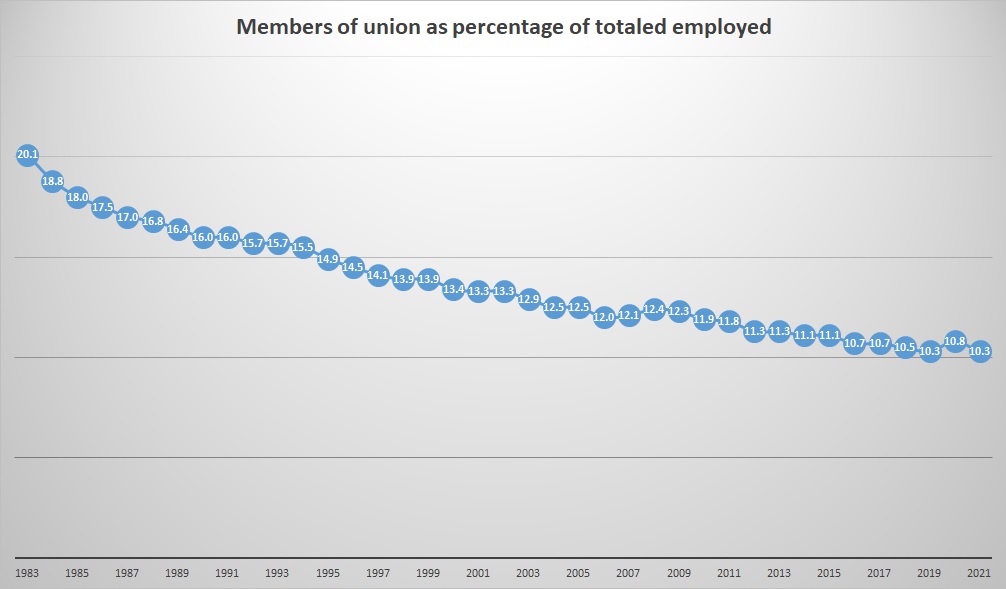XPO port drivers taking steps to unionize
XPO Logistics drivers in Southern California are looking to unionize in what is being touted as the first such election for misclassified port and rail truckers.
On Wednesday, truckers driving for XPO Logistics filed for an election to form a union. According to the International Brotherhood of Teamsters, this is the first National Labor Relations Board election involving alleged misclassified port and rail truck drivers.
The move to unionize takes the misclassification allegations out of the courtroom and into the jurisdiction of federal agencies. The Teamsters claim that the union election filing is challenging the misclassification of drivers “head on.”
Additionally, truckers filed an unfair labor practice charge. That charge alleges that by misclassifying drivers as independent contractors XPO Logistics is interfering with drivers’ right to organize, a violation federal labor law. Furthermore, the charges allege that the company is violating its federally imposed duty to bargain by refusing to recognize and bargain with the union its drivers have chosen, according to the Teamsters.
“My fellow drivers and I are proud of the work we do every day to keep the supply chain moving and provide for our communities. Today, we’re proud to take the next step in forming a union to give us a voice on the job and fight for better pay and benefits,” Domingo Avalos, an XPO driver, said in a statement. “Our company, XPO Logistics, tries to silence us by ignoring our demand for a union and by keeping us misclassified as independent contractors. But when we win our union, we will force XPO to listen – because we know together our voice is more powerful than any big corporation.”
XPO Logistics has 12,000 truck drivers that are full-time employees. Of those drivers, only about 200 have joined a union at a total of four locations. At two of those locations, XPO and the Teamsters agreed to contracts. The other two locations currently involve good-faith negotiations on a first contract.
However, employees at three other XPO locations voted to decertify the Teamsters as their bargaining representative just in the past two years. At two other locations, the Teamsters walked away from XPO employees after the employees rejected contracts that the Teamsters negotiated with XPO.
There are about 360 XPO independent contractors in California. According to XPO spokesperson Joseph Checkler, a predominant number of its drivers are full-time employees in its LTL division. XPO uses independent contractors in some parts of its business.
“Many of the independent small-business owners who contract with XPO prefer the contractor work model, given the flexibility it provides to set their own schedule and choose their work,” Checkler told Land Line in a statement. “They can grow their business by hiring others and running multiple trucks and the freedom to offer their services to multiple companies. We believe we adhere to all federal, state and local laws, and we that we properly classify all individuals and businesses that perform work on behalf of XPO. In addition, any independent contractor with a commercial driver’s license who wants to work for XPO as a full-time employee is welcome to apply for any number of truck driver openings offered by XPO. We currently employ approximately 12,000 full-time truck drivers and we’re recruiting more.”
According to a Bureau of Labor Statistics report released on Thursday, union membership among the U.S. workforce remains stagnant.
As a percentage of the workforce, union membership has either declined or remained unchanged nearly every year since records began in 1983.

Last year, 10.3% of wage and salary workers were union members, down from 10.8% in 2020. However, 2020 was anomaly due to the pandemic. The union membership rate in 2020 increased from 10.3% due to a disproportionately large decline in the total number of nonunion workers compared with the decline in the number of union members. Last year maintained the status quo with the union membership remaining unchanged from the year before the pandemic.
Industries with high unionization rates included utilities (19.7%), motion pictures and sound recording industries (17.3%), and transportation and warehousing (14.7%).
XPO Logistics’ history of misclassification allegations
Independent contractors cannot form a union, per federal law. In the trucking industry, some companies misclassify drivers as independent drivers to avoid unions, among other financial incentives. XPO Logistics has been the subject of several lawsuits claiming that.
In October, XPO Logistics agreed to pay nearly $30 million to settle two misclassification lawsuits involving hundreds of port drivers. In 2019, the company settled for $5.5 million in a federal wage lawsuit in California. Two similar lawsuits were settled that year as well, including one for $16.5 million and another for $3.5 million.
Congress began looking into the situation in December 2018 after scathing reports from The Los Angeles Times and The New York Times. Those reports exposed alleged mistreatment of XPO Logistics employees. Soon after, Rep. Steve Cohen, D-Tenn., sent a letter to Chairwoman Virginia Foxx and ranking member Bobby Scott of the Committee on Education and the Workforce regarding those allegations. A total of 97 representatives signed the letter.
“According to The Los Angeles Times, XPO Logistics at the ports of Los Angeles, Long Beach and Oakland, Cali., is also alleged to be engaged in misclassifying short-haul truck drivers as independent contractors rather than employees, rendering thousands of truck drivers ineligible for unemployment benefits, disability pay or workers’ compensation,” the letter explained.
Last year, XPO Logistics drivers in Miami and Trenton, N.J., ratified contracts with the Teamsters. Land Line Contributing Editor John Bendel points out that “XPO’s LTL operation began with its 2015 purchase of Con-way Freight, which owed its very existence to being nonunion.” LL









